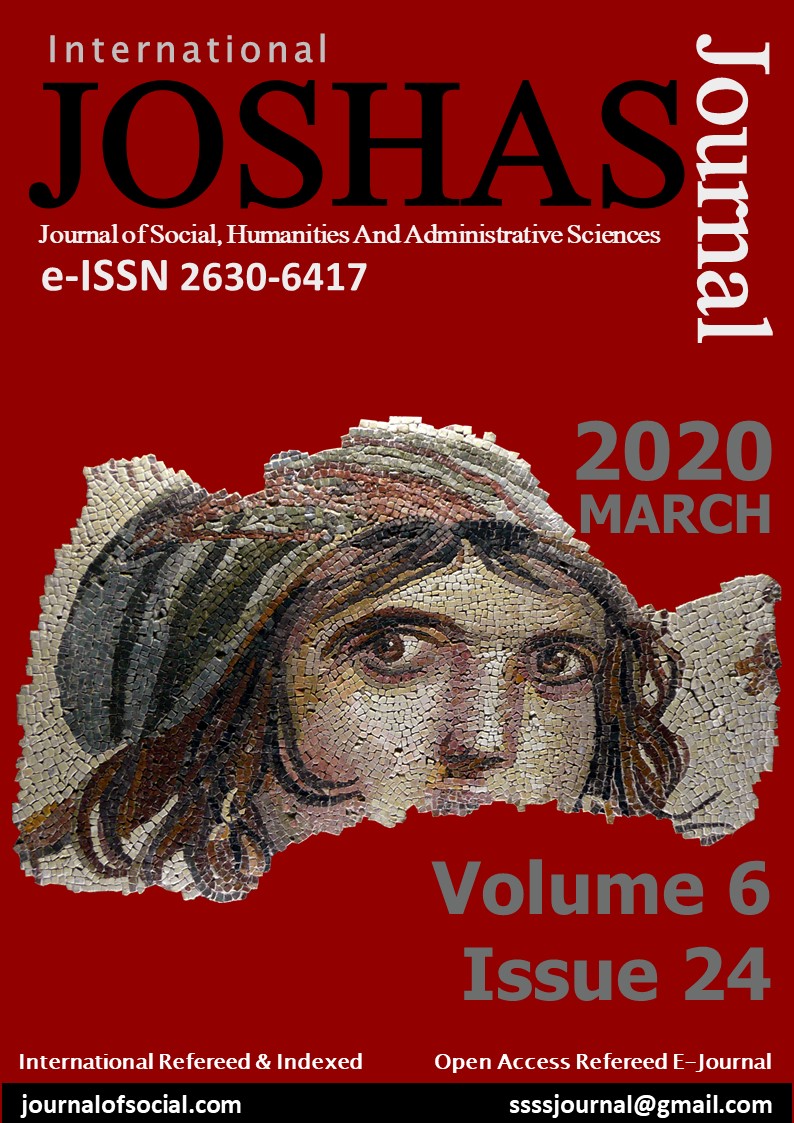Author :
Abstract
ÖZET Geçmişten günümüze enerji, özellikle gelişmekte olan ve gelişmiş ülkeler için gerek politik gerekse ekonomik anlamda önemini korumaktadır. Nüfusun hızla artması ve buna bağlı olarak da mevcut enerji kaynaklarının tükenmeye başlaması, bu ülkelerin alternatif enerji kaynaklarına yönelmelerine neden olmuştur. Bir enerji kaynağının tüketilmesi ve sürekli bir şekilde kendini yenilemesi, yenilenebilir enerji kavramını gündeme getirmiştir. Tam da bu noktada yenilenebilir enerji kaynakları, ekonomi literatüründe üzerinde durulması gereken bir unsur haline gelmiştir. Bu çalışmanın amacı, seçilmiş 16 ülkenin 2000-2018 dönemine ait yıllık verileriyle yenilenebilir enerji tüketiminin belirleyicileri panel veri analiz yöntemi kullanılarak incelenmesidir. Çalışmada; Dünya Bankası, Dünya Genelinde Yönetişim Göstergeleri ve BP İstatistiksel Dünya Enerji İncelemesi resmi sitelerinden elde edilen veriler kullanılmıştır. Bu çalışmada, bağımlı değişken olarak yenilenebilir enerji tüketimi; bağımsız değişken olarak ise GSYH, genel hükümet nihai tüketim harcamaları, CO2 emisyonu, hukukun üstünlüğü endeksi, doğrudan yabancı yatırımlar ve işgücü (miktar olarak) belirtilerek analize dâhil edilmiştir. Çalışmada, yenilenebilir enerji tüketiminde belirleyici faktörlerin incelenmesi için sabit etkiler ile tesadüfi etkiler modelleri ve GMM modeli karşılaştırılarak analiz edilmiştir. Analizde elde edilen tahmin sonuçlarına bağlı olarak bu değişkenlerin yenilenebilir enerji tüketimine etkileri yorumlanmıştır.
Keywords
Abstract
From the past to the present day energy, maintains its importance both politically and economically, especially for developing and developed countries. The rapid increase in the population and consequently the depletion of existing energy sources have led these countries to turn to alternative energy sources. The consumption of an energy source and incessantly renewing itself has brought forward the concept of renewable energy. At this point, renewable energy sources have become an important factor in the economic literature. The aim of this study is to investigate the determinants of renewable energy consumption using panel data analysis method with annual data of 16 selected countries for the period 2000-2018. Data from the World Bank, Worldwide Governance Indicators and BP Statistical World Energy Review official sites were used in the study. In this study, renewable energy consumption as dependent variable; GDP, general government final consumption expenditures, CO2 emissions, the rule of law index, foreign direct investments and labor force (quantity) were included in the analysis by specifying. In the study, fixed effects and random effects models and GMM model were analyzed to investigate by comparing the determinant factors of renewable energy consumption. The effects of these variables on renewable energy consumption were interpreted depending on the estimated results obtained in the analysis.
Keywords
- A.Yılmaz, Eren A, Hatice C. Öziç (2018). “ Türkiye’nin Yenilenebilir Enerji Potansiyeli ve Gelecek
- A.Yılmaz, Eren A, Hatice C. Öziç (2018). “ Türkiye’nin Yenilenebilir Enerji Potansiyeli ve Gelecek Hedefleri.” Ordu Üniversitesi Sosyal Bilimler Araştırmaları Dergisi, 8(3), s.525-535.
- Bakırtaş, I. & S. Bayrak & A. Çetin (2014), “Economic Growth and Carbon Emission: A Dynamic Panel Data Analysis”, European Journal of Sustainable Development, 3 (4), 91-102.
- Baltagi, Badi, ve diğerleri(2011). Testing for sphericity in a fixed effects panel data model Econometrics Journal, volume 14, pp. 25–47. doi: 10.1111/j.1368-423X.2010.00331.x
- Chen, G.Q. & Wu, X.F., 2017. "Energy overview for globalized world economy: Source, supply chain and sink," Renewable and Sustainable Energy Reviews, Elsevier, vol. 69(C), pages 735-749.
- Çınar, S. ve M. Yılmazer (2015) “Yenilenebilir Enerji Kaynaklarının Belirleyicileri ve EkonomikBüyüme İlişkisi: Gelişmekte Olan Ülkeler Örneği”, Dokuz Eylül Üniversitesi İktisadi ve İdari Bilimler Fakültesi Dergisi, Cilt 30, Sayı 1: 55-78.
- Çıtak, E, Pala Kılıç, P. B. Yenilenebilir Enerjinin Enerji Güvenliğine Etkisi. Süleyman Demirel Üniversitesi Sosyal Bilimler Enstitüsü Dergisi, 3,79-1102, 2016.
- Çolak, A. Batur (2013), “Şekillendirilen Orta Doğu’da Şekillenen Türk Enerji Politiği”, 21. Yüzyıl, Sayı: 55, s. 14-19.
- Kara, Serap vd. (2006), Çevre Sağlığı, Anadolu Üniversitesi Yayın No: 1695, Eskişehir.
- Luft, Gal, Korin, Anne (2009). Energy Security Challenges for the 21st Century. Santa Barbara: Praeger Security International.
- M. Mehrara et al., "Determinants of Renewable Energy Consumption among ECO Countries; Based onBayesian Model Averaging and Weighted-Average Least Square", International Letters of Social and Humanistic Sciences, Vol. 54, pp. 96-109, 2015.
- Zoundi, Zakaria, 2017. "CO2 emissions, renewable energy and the Environmental Kuznets Curve, a panelcointegration approach", Renewable and Sustainable Energy Reviews, Elsevier, vol. 72(C), pages 1067- 1075.
- Montgomery, Scott L. (2014), Küresel Enerjiye Yön Veren Güçler 21. Yüzyıl ve Sonrası, TÜBİTAK Popüler Bilim Kitapları, Ankara.
- Narin, M. 2008. Türkiye’nin Enerji Yapısı ve İzleyeceği Öncelikli Politikalar, Asodosya Ankara Sanayi Odası Dergisi, 50- 68, Ağustos-Eylül, Ankara.
- Spurgeon, Richard ve Mike Flood (2010), Enerji ve Güç, TÜBİTAK Popüler Bilim Kitapları.
- Torres-Reyna, O. (2007) Panel Data Analysis Fixed and Random Effects Using Stata (v. 4.2). Data & Statistical Services, Priceton University.
- Atık Yönetimi Yönetmeliği, (2015, 2 Nisan), Resmi Gazete (Sayı:29314), (http://www.resmigazete.gov.tr/eskiler/2015/04/20150402-2.htm)
- Australian Renewable Energy Agency Regulation 2016. (https://www.legislation.gov.au/Details/F2016L00731)
- (https://www.aa.com.tr/en/economy/renewables-at-forefront-of-energy-transition-discussion) http://www.tenva.org/2015-turkiye-ilerleme-raporunda-enerji-fasli/
- https://www.irena.org/-/media/Files/IRENA/Agency/Publication/2013/rejobs.pdf https://www.ren21.net/





